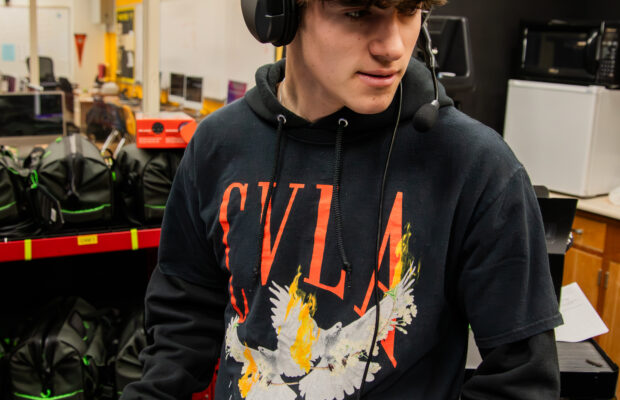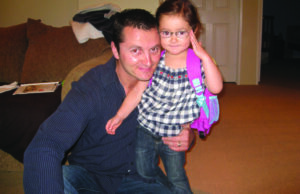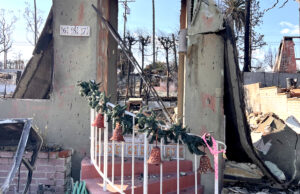PTV Live captivates NPHS students

For over seven years the advanced broadcasting class, Panther Television (PTV) has provided students with the opportunity to learn skills for the broadcast TV industry through bi-weekly pre-recorded episodes posted on YouTube. For the 2023-2024 school year, the PTV class tried something new. “We had an overwhelming amount of students in this class this year for some reason, so Mr. Grimes came up with the idea to do something like PTV live which was more extravagant and a step up from what we were used to,” Hayley Harris, senior in the advanced broadcasting class said. The main differences between PTV’s usual shows and their live shows is the longer runtime and higher stakes that a live broadcast carries.
PTV live exhibits a level of pressure that is incomparable to their regular shows, because any technical difficulties are magnified due to the strict time schedule they want to adhere to. “The music wouldn’t start for Camden [Aschbrenner]’s tap dance, and we had no idea what was happening,” Zoe Maturo, sophomore, said.
Sydney Scott, junior, was willing to give up time after school for the new PTV format.. “With our episodes, we can’t do it live with our schedule […],so Mr. Grimes wants us to get that really raw experience of a live show […]just on a smaller scale of our high school,” Scott said.
PTV live required many different roles within the broadcasting process in order for it to be managed by PTV students. Harris was involved in both PTV live broadcasts; “In the first PTV live I was in charge of interviewing the directors of the movie Incoming and editing the extended package. It was a lot of fun talking to John and Dave Chernin. As someone who is interested in pursuing film as a career that was a very special opportunity to sit down with them, learn and just listen to all the things they had to say,” Harris said.
Scott preferred to be behind the camera rather than in front of it as an interviewer; “I like the behind the scenes stuff, like working on the cameras, changing the camera positions, or being technical director where I press buttons to change which camera is live. I like the behind the scenes because I see the full view of it all coming together and I like the intricate work that it requires,” Scott said.
Harris gained experience from her role as executive producer of the second PTV live broadcast; “[Producers] pick the interviews, demonstrations and extended packages. We arrange the order of the show and assign everyone in the class roles, and we oversee the whole thing, and if there are issues that come with the unpredictability with live TV our job is to try to solve those issues as efficiently as possible,” Harris said. Some potential disruptions a producer may tackle include audio issues, teleprompter accidents, and even live-editing slips. These are often handled by finding a way to fill the airtime while quietly resolving the problem, or addressing it directly when necessary.
PTV is just one of NPHS’ electives that can train students for a specific industry that they may want to go into as a career. From fixing technical mistakes on the fly, interviewing directors and learning how to use broadcasting equipment, the addition of live shows in the class has proven to be an effective way for students in PTV to gain even more experience.



